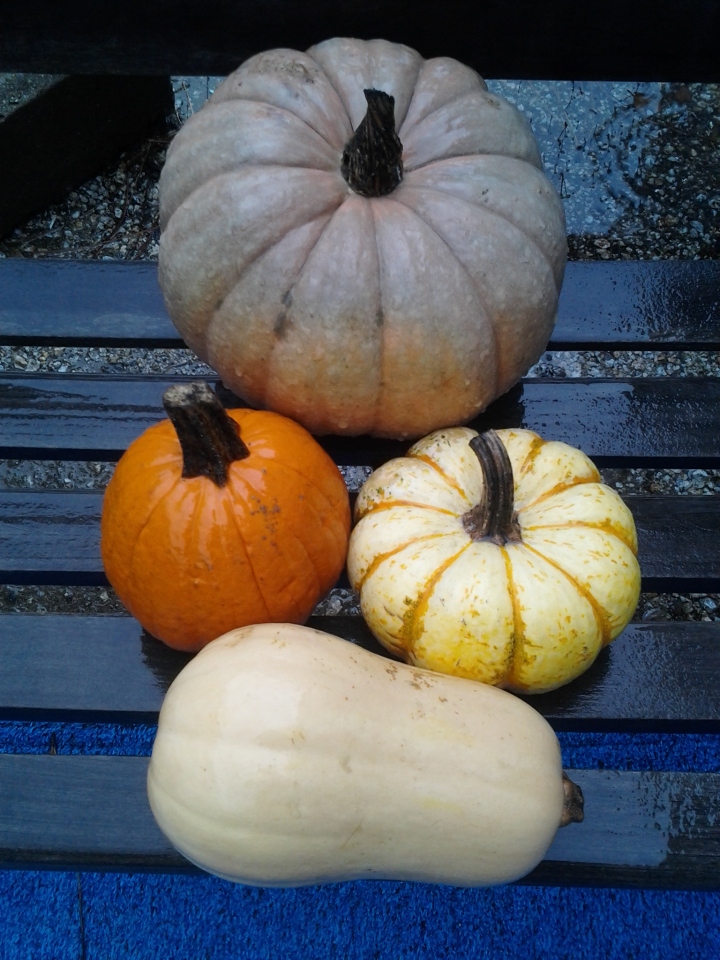 With all the talk about replacing warm season vegetables and bedding plants with their cool season counterparts this time of year, we should also address the irony of summer squash and winter squash. Their designations suggest that they too grow in specific seasons; summer and winter. Duh. It would make sense that summer squash would be replaced by winter squash during autumn.
With all the talk about replacing warm season vegetables and bedding plants with their cool season counterparts this time of year, we should also address the irony of summer squash and winter squash. Their designations suggest that they too grow in specific seasons; summer and winter. Duh. It would make sense that summer squash would be replaced by winter squash during autumn.
However, both groups are warm season vegetables that can get planted or sown as seed in early spring. The vines of both summer and winter squash grow through spring and summer, and then eventually succumb to the first frost. The difference is that summer squash start producing early and abundantly, and continue to produce through summer. Winter squash ripen slowly in autumn.
Summer squash, like zucchini, pattypan and crookneck squash, are very prolific. Zucchini can be overwhelmingly so. However, their fruits, which are incidentally considered by most to be culinary ‘vegetables’, are best fresh. Otherwise, they are quite perishable. They can be frozen or canned, but do not hold up well. Consequently, good summer squash are unavailable after the first frost.
Winter squash, like Hubbard, acorn, butternut, turban and spaghetti squash, as well as pumpkins, are not nearly as productive. Individual plants might produce only single large fruits, or only a few small fruits, depending on variety. These fruits develop and ripen so slowly that they are not ready until autumn, as the vines are withering. Supposedly, exposure to slight frost improves their flavor.
The advantage of winter squash is that the fruits are tough enough to be stored for months into winter, hence their designation as winter squash. Some pumpkins can be stored out of the weather for months after winter, although flavor and nutritional quality slowly deteriorate. If that is not long enough, the flesh of winter squash can be peeled, and then frozen or canned. Unfortunately, winter squash are no substitute for summer squash, and take more work to cook, but they are certainly worth growing.
Winter squash are so hard that you could go for stitches when you’re cutting them open. But if you take care with that, you get good rewards!
LikeLiked by 1 person
Yes, that can be a problem. I have bashed them onto pavement before, but they get dirty that way.
LikeLiked by 1 person
I have put some in the microwave for 15 seconds to soften them some. That helps a little and not long enough to affect the quality/consistency.
LikeLiked by 1 person
Sometimes I use a cleaver, we have a good heavy one for butchering and it works great for squash…
LikeLiked by 2 people
I have used a machete. I think a cleaver would be more precise for those who want to cut it into neat pieces. Bashing on concrete is not precise at all!
LikeLike
We love winter squash, so many choices for soup, baked, roasted, stir fried. Yummy, yummy!
LikeLiked by 1 person
I like to grow them because they just do their own thing. I just give them water with the rest of the garden. Eventually, they get frosted and the foliage folds back to reveal the squash that the vines had been working on all year in obscurity. I never learned how to cook, so I am often surprised by how they end up.
LikeLike